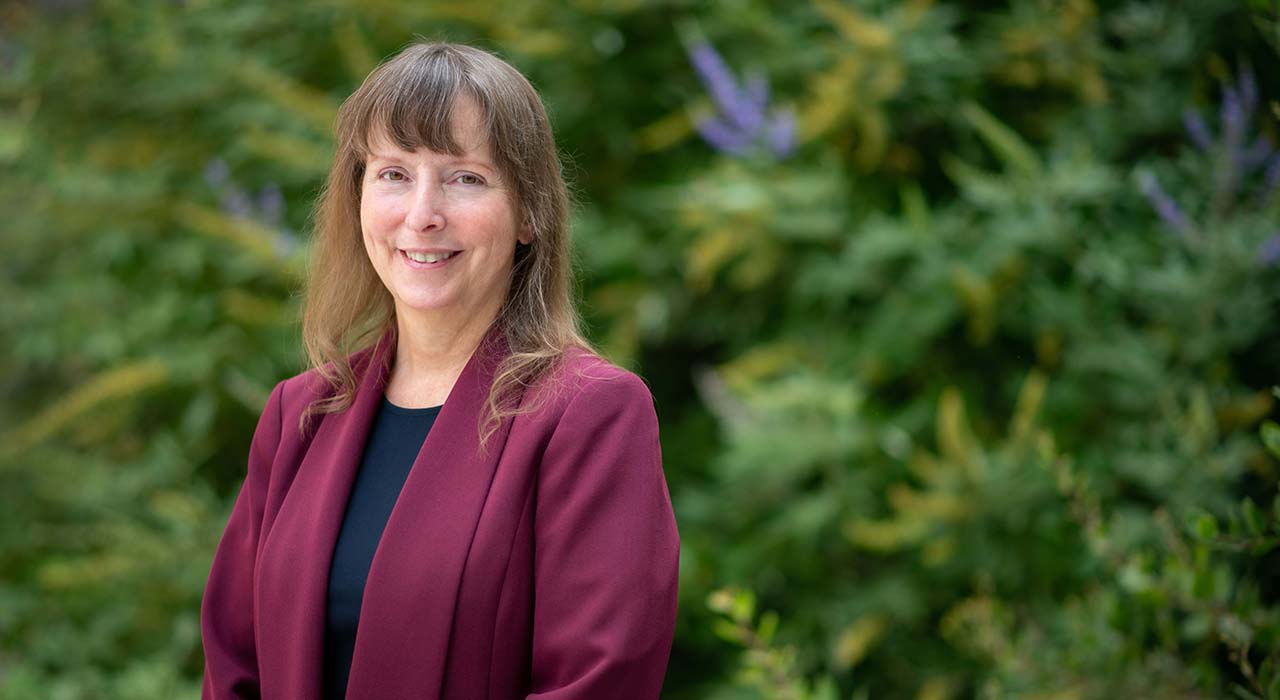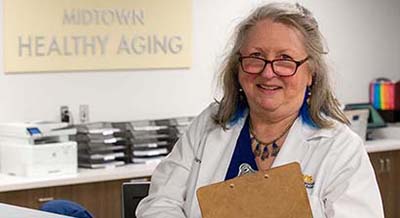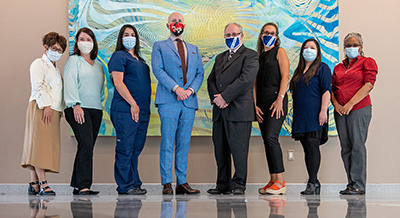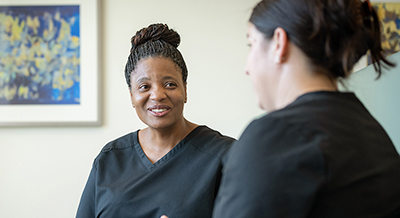When U.S. News & World Report announced its Best Jobs for 2021, it’s no surprise that nurse practitioner (N.P.) ranked No. 3 in all professions and No. 2 in health care.
Editors credit the fact that N.P. jobs “pay well, challenge us year after year… offer room to advance throughout our careers and provide a satisfying worklife balance.” In addition, the Bureau of Labor Statistics projects employment will grow 52.4% between 2019 and 2029 with more than 110,000 jobs opening in that timeframe.
But those statistics tell only part of the story for what makes the profession so attractive.
“The N.P. profession is appealing because it offers intellectual challenge, ample opportunity to autonomously work with patients across a variety of settings. It brings me great joy to watch people learn about how to protect their health and manage their disease where they possess the ability to take care of themselves,” says Kathryn Sexson, a family nurse practitioner and director of the Betty Irene Moore School of Nursing’s Doctor of Nursing Practice — Family Nurse Practitioner (DNP-FNP) Degree Program.
As the popularity of the N.P. profession grows, so does the choice of a doctoral degree for those pursuing that route. Enrollment in Doctor of Nursing Practice (DNP) programs has increased nearly 10% in the past three years, according to Susan Bakewell-Sachs, chair of the American Association of Colleges of Nursing board chair.
The School of Nursing will join the more than 350 DNP programs nationwide when it launches its post-baccalaureate DNP-FNP program summer 2022.
“The person who values clinical excellence and fosters community by recognizing the value each of our colleagues brings to the table — whether it is a fellow FNP student, a faculty member, a member of the interprofessional team or a community member — is someone who will excel in our program,” Sexson adds. “It is not about who is at the top of the class here, but how together we all succeed.”
The three-year hybrid program combines distanced-based education with four on-campus immersions in Sacramento. With its specialty focus on geriatrics, family medicine, underserved communities and rural health, the DNP-FNP program prepares advanced practice providers to engage in patient- and family-centered, evidence-based primary care.
The program complements the Doctor of Philosophy (PhD) program. PhD-prepared nurses generate new knowledge through systematic investigation and advance the science of nursing in an academic setting. A DNP-prepared nurse puts that knowledge into practice in the clinical environment.
While many schools offer the degree, the School of Nursing’s program is built uniquely on the core values of the school — innovative clinical practice, health equity and bold leadership.
“The idea that you are born into leadership is a misconception,” explains Susan Adams, an associate professor and former elected county supervisor in Marin County, California. “The challenge is how do we teach people the skills to tap into their leadership potential. At the Betty Irene Moore School of Nursing, we’re giving you the opportunity to learn the skills that will get you there.”
Using the values associated with the framework of cultural humility, the program is guided by creating just and equitable care in partnership with marginalized and underserved communities.
“We want individuals who leave our programs to be equity-minded, which means they have the skills and the desire to help come up with solutions we need,” says Piri Ackerman-Barger, associate dean for Health Equity, Diversity and Inclusion. “We also need to make sure that there is equity in access to becoming a health care provider or to becoming doctorally prepared.”
Finally, the DNP-FNP program is committed to interprofessional educational experiences across multiple disciplines including medicine, social work, veterinary medicine and nursing to provide FNPs with an understanding of roles, collaborations and opportunities for leadership.
Sexson says the School of Nursing’s diverse faculty team is committed to educating the next generation of providers who are not afraid to question the status quo.
“Students can expect faculty who are as just as invested in your success as you are,” Sexson adds. “Our faculty value your input and are committed to a collaborative learning environment.”






